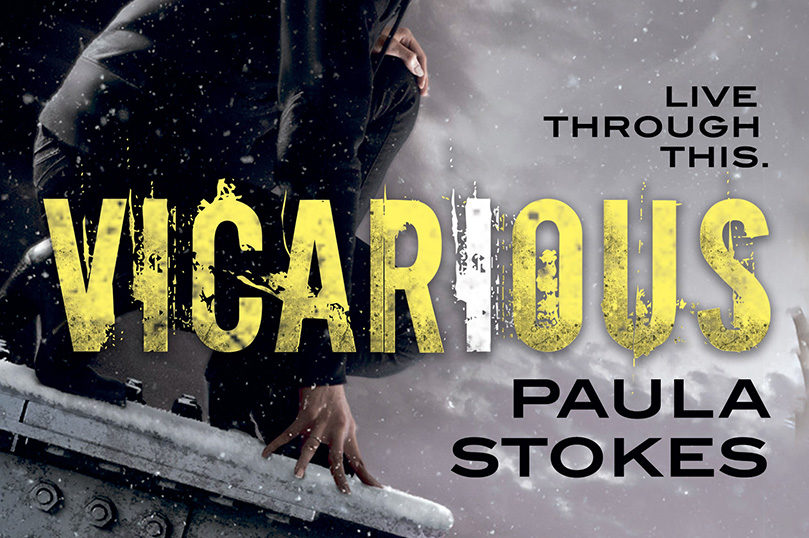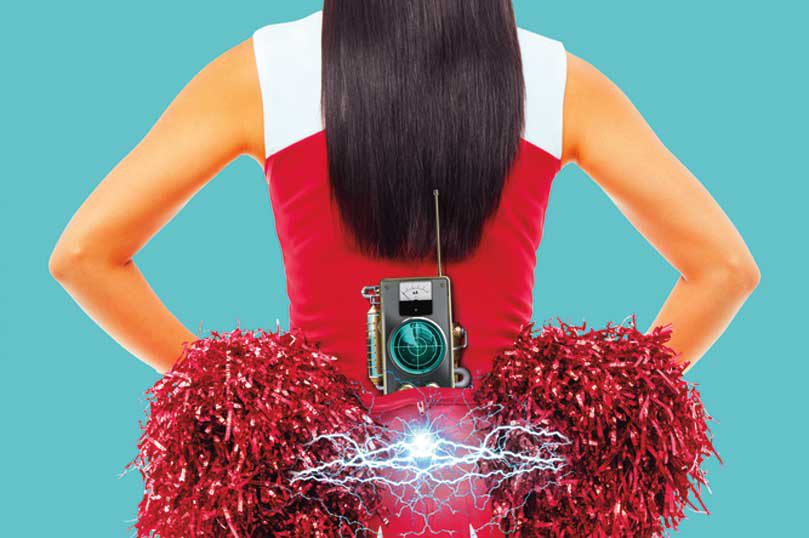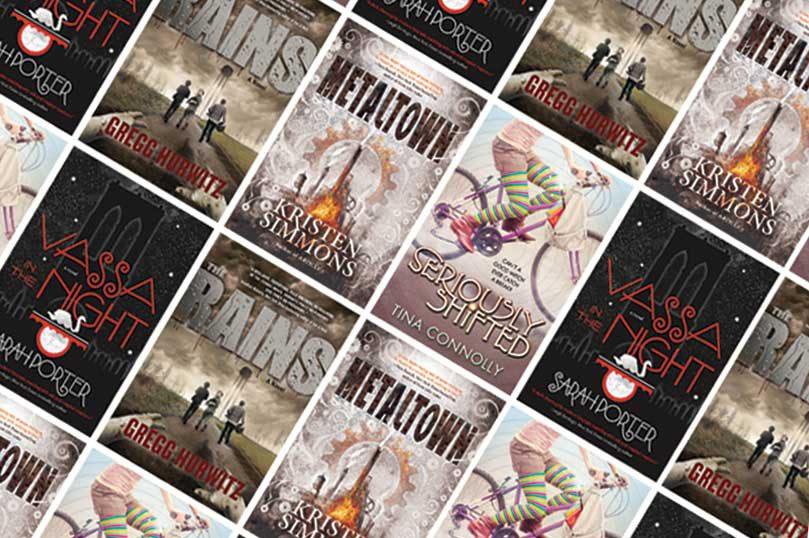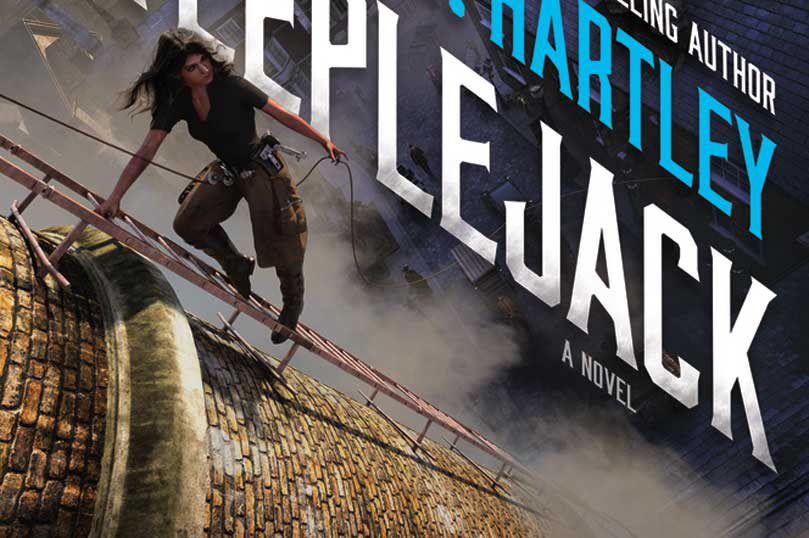





 Seventeen-year-old Anglet Sutonga lives repairing the chimneys, towers, and spires of the city of Bar-Selehm. Dramatically different communities live and work alongside each other. The white Feldish command the nation’s higher echelons of society. The native Mahweni are divided between citylife and the savannah. And then there’s Ang, part of the Lani community who immigrated over generations ago as servants and now mostly live in poverty on Bar-Selehm’s edges.
Seventeen-year-old Anglet Sutonga lives repairing the chimneys, towers, and spires of the city of Bar-Selehm. Dramatically different communities live and work alongside each other. The white Feldish command the nation’s higher echelons of society. The native Mahweni are divided between citylife and the savannah. And then there’s Ang, part of the Lani community who immigrated over generations ago as servants and now mostly live in poverty on Bar-Selehm’s edges.
When Ang is supposed to meet her new apprentice Berrit, she instead finds him dead. That same night, the Beacon, an invaluable historical icon, is stolen. The Beacon’s theft commands the headlines, yet no one seems to care about Berrit’s murder—except for Josiah Willinghouse, an enigmatic young politician. When he offers her a job investigating his death, she plunges headlong into new and unexpected dangers.
Thoughtfully imaginative and action-packed, Steeplejack is A. J. Hartley’s YA debut set in a 19th-century South African fantasy world—available June14th. Please enjoy this excerpt.
CHAPTER 1
THE LAST PERSON UP here never made it down alive, but there was no point thinking about that. Instead, I did what I always did—focused on the work, on the exact effort of muscle, the precise positioning of bone and boot that made it all possible. Right now, that meant pushing hard with my feet against the vertical surface of one wall while my shoulders strained against another, three feet away. I was horizontal, or as near as made no difference, the two brick faces forming an open shaft. If I relaxed even fractionally, I would die on the cobbles eighty feet below.
So don’t.
It really was that simple. You figured out what you needed to do to stay alive, and you did it, however your sinews screamed and your head swam, because giving in meant falling, and falling meant death.
I was working the old cement factory on Dyer Street, bypassing a rusted-out portion of the ladder to the roof on my way to rebuilding the chimney itself, the top rim of which had shed bricks till it looked like a broken tooth. I braced myself and inched my way up, brick by brick, till I reached the section of ladder that was still intact and tested it with one cautious hand.
Seems solid enough.
I pivoted and swung my body weight onto the lowest rung. For a moment, I was weightless in empty air, seesawing between life and death, and then I was safe on the ladder and climbing at ten times my previous speed.
I am Anglet Sutonga—Ang to those who think they know me—and I am a steeplejack, one of perhaps six or seven dozen who work the high places of Bar-Selehm. Some say I am the best since the Crane Fly himself, half a century ago. They might be right at that, but boasting—even if it stays in your head—makes you careless, and the one thing you really can’t afford up there on the spires and clock towers and chimneys is carelessness. If I was good, it was because at seventeen I’d lived longer than most.
I moved easily over the roof to the point where the great round tower of the chimney reached up into the murky sky, tested the ladder, and began the slow climb to the top. Most of the really tall factory chimneys—the hundred- or two-hundred-footers—taper as they go, but they generally flare at the top, sometimes with an elaborate cap that juts out. These make for interesting climbing. You scale straight up; then you have to kick out and back, hanging half upside down over nothing, till you get over the cap and onto the upper rim.
There are no ladders at the top. If you leave them in place, the anchor holes in the mortar will trap moisture and crack the brick, so after each job, the steeplejack takes the ladders down and fills the holes. In this case, the ladder up to the cap was still there because two months ago, Jaden Saharry—the boy who had been working the chimney—fell, and no one had finished the job.
He was thirteen.
Most steeplejacks are boys. When they are young, it doesn’t much matter what sex they are, because the work is just getting up inside the fireplaces of big houses and climbing around in the chimneys with a brush and scraper. It is all about being small, and less likely to get stuck. But as the steeplejacks grow too big for domestic chimneys and graduate to the factory stacks, strength and agility become key. Then, since no one is looking for a bride who can outlift him, the girls are gradually given other things to do with their daylight hours. I was the only girl over fourteen in the Seventh Street gang, and I maintained my position there by climbing higher and working harder than the boys. And, of course, by not falling.
A new boy—Berrit—was supposed to be up here, waiting for me to show him the ropes, but there was no sign of him. Not a good start, though in truth, a part of me was relieved.
Today I would want to be alone with my thoughts as much as possible.
Ten feet below the great brick overhang of the cap, I cleared the last mortared hole with my chisel and hooked one leg over the top of the ladder so I could use both hands. I took a wooden dowel from my pocket and pressed it into the cavity with the heel of my hand, then drew an iron spike—what we call a dog—from the satchel slung across my chest, positioned its tip against the protruding end of the dowel, and drove it in with three sharp blows of my lump hammer. The action meant straightening up and back, and I felt the strain in my belly muscles as I leaned out over the abyss. The ground, which I could see upside down if I craned back far enough, was a good two hundred feet below. Between me and it, a pair of vultures was circling, their black, glossy wings flashing with the pale light of dawn. I’d been higher, but there comes a point when a few more feet doesn’t really make any difference. Dead is dead, whether you fall from fifty feet or three hundred.
The dog split the dowel peg and anchored in the brick. I tested it, then ran the rope to pull the last length of ladder into place, ignoring the tremble of fatigue in my arms as I hooked and lashed it firm. I took a breath, then climbed the newly positioned rungs, which leaned backwards over the chimney cap, angling my boots and gripping tightly with my hands. Carefully, like a trapeze artist, I hauled my body up, out, and over. I was used to being up high, but it was only when I had to navigate the chimney caps that I felt truly unnerved.
And thrilled.
I didn’t do the job just because I was good at it. I liked it up here by myself, high above the world: no Morlak looking over my shoulder, no boys testing how far they had to go before I threw a punch, no wealthy white folk curling their lips as if I put them off their breakfast.
I clambered over and sat inside the broad curve of the chimney’s fractured lip, conscious of my heart slowing to something like normal as I gazed out across the city. From here I could count nearly a hundred chimneys like this one. Some taller, some squat, some square sided or stepped like pyramids, but mostly round like this, pointing up into the sky like great smoking guns, dwarfing the minarets and ornamental roofs that had survived from former ages.
It had once been beautiful, this bright, hot land rolling down to the sea. In places, it still was—wide and open savannahs where the sveld beasts grazed and the clavtar stalked; towering mountains, their topmost crags lost in cloud; and golden, palm-fringed beaches.
And sky. Great swatches of startling, empty blue where the sun burned high during the day, and night brought only blackness and a dense scattering of stars.
That’s how it had been, and how it still was not so very far away. But not here. Not in Bar-Selehm. Here were only iron and brick and a thick, pungent smoke that hung in perpetual shroud over the pale city, shading its ancient domed temples and stately formal buildings. A couple of miles inland, down by the Etembe market, the air was ripe with animal dung, with the mouthwatering aroma of antelope flesh roasted over charcoal braziers, with cardamom, nutmeg, and pepper and, when the wind blew in from the west, the dry but fertile fragrance of the tall grass that bent in the breeze all the way to the mountains. In the opposite direction was the ocean, the salt air redolent with fish and seaweed and the special tang of the sea. But here there was only smoke. Even all the way up the chimneys, above the city, and at what should have been the perfect vantage on the minarets of Old Town, and on the courts and monuments of the Finance District, I could see little through the brown fog, and though I wore a ragged kerchief over my mouth and nose, I could still taste it. When I spat, the slime was spotted with black flakes.
“If the work doesn’t kill you,” Papa used to say, “the air will.”
I sat on the dizzying top, my legs hooked over the edge, and below me nothing for two hundred feet but the hard stone cobbles that would break a body like a hundred hammers.
I studied the cracked and blackened bricks around the chimney’s rim. Three whole rows were going to have to come out, which meant ferrying hods of new bricks and mortar up and down the ladders. It was a week’s work or more. I was faster than the others on the team, and though that generally earned me little but more work, I might make an extra half crown or two. Morlak didn’t like me, but he knew what I was worth to him. And if I didn’t do the job, if Sarn or Fevel took over, they’d mess it up, or miss half of what needed replacing, and we’d all suffer when the chimney cap crumbled.
I gazed out over the city again, registering … something.
For a moment it all felt odd, wrong, and I paused, trying to process the feeling. It wasn’t just my mood. It was a tugging at the edge of consciousness like the dim awareness of an unfamiliar scent or a half memory. I moved into a squat, hands down on the sooty brick, eyes half-closed, but all I got was the fading impression that the world was somehow … off.
I frowned, then reached back and worked the tip of my chisel into the crumbled mortar. Steeplejacks don’t have much time for imagination except, perhaps, in fiction, and since I’m the only one I know who reads books, I’m not really representative. Three sharp blows with the hammer, and the brick came free, splintering in the process, so that a flake flew out and dropped into the great black eye of the chimney.
I cursed. Morlak would let me know about it if I filled the grate at the bottom with debris. I gathered the other remains and scooped them into my satchel, then repositioned the chisel and got on with the job.
No one choses to be a steeplejack. A few are poor whites and orphans, some are blacks who fall foul of the city and cannot return to a life among the herds on the savannah, but most are Lani like me, lithe and brown, hazel eyed, and glad of anything that puts food in their mouths. A few, men like Morlak—it is always men—make it into adulthood and run the gangs, handing off the real work to the kids while they negotiate the contracts and count the profits.
I didn’t mind it so much. The heights didn’t bother me, and the alternative was scrubbing toilets, working stalls in the market, or worse. At least I was good at this. And on a clear day, when the wind parted the smog, Bar-Selehm could still be beautiful.
I set the hammer down. The satchel was getting full and I had only just begun. Standing up, I turned my back toward the ladder, and for a moment, I felt the breeze and steadied myself by bending my knees slightly. In that instant it came again, that sense that the world was just a little wrong. And now I knew why.
There was something missing.
Normally, my view of the city from hereabouts would be a gray-brown smear of rooftops and chimney spikes, dark in the gloom, save where a single point of light pricked the skyline, bathing the pale, statuesque structures of the municipal buildings with a glow bright and constant as sunlight. Up close it was brilliant, hard to look at directly, even through the smoke of the chimneys. By night it kept an entire block and a half of Bar-Selehm bright as day, and even in the densest smogs it could be seen miles out to sea, steering sailors better than the cape point lighthouse.
It was known as the Beacon. The light was housed in a crystal case on top of the Trade Exchange, a monument to the mineral on which the city had been built, and a defiantly public use of what was surely the most valuable item in the country. The stone itself was said to be about the size of a man’s head, and was therefore the largest piece of luxorite ever quarried. It had been there for eighty years, over which time its light had barely diminished. Its value was incalculable.
And now it was gone. I strained my eyes, disbelieving, but there could be no doubt. The Beacon was not dimmed or obscured by the smoke. It was gone, and with that, the world had shifted on its axis, a minute adjustment that altered everything. Even for someone like me, who was used to standing tall in dangerous places, the thought was unsettling. The Beacon was a constant, a part of the world that was just simply there. That it wasn’t felt ominous. But it also felt right, as if the day should be commemorated with darkness.
Papa.
I touched the coin I wore laced round my neck, then took a long breath. There was still no sign of Berrit, and my satchel needed emptying.
After moving to the top of the ladder, I reached one leg over, then the other. There was a little spring in the wood, but the dogs I had hammered into the brickwork were tight, and the ladder felt sure under my weight. Even so, I was careful, which was just as well, because I was halfway over the perilous cap when someone called out.
The suddenness of it up there in the silence startled me. One hand, which had been moving to the next rung, missed its mark, and for a moment, I was two-thirds of the way to falling. I righted myself, grabbed hold of the ladder, and stared angrily down, expecting to see Berrit, the new boy, made stupid by lateness.
But it wasn’t, and my annoyance softened.
It was Tanish, a Lani boy, about twelve, who had been with the gang since his parents died three years ago. He was scrambling recklessly up, calling my name still, his face open, excited.
“Stop,” I commanded. “Wait for me on the roof.”
He looked momentarily wounded, then began to climb down.
Tanish was the closest thing I had to an apprentice. He followed me around, learning the tricks of the trade and how to survive in the gang, gazing at me with childish admiration. He was a sweet kid, too sweet for Seventh Street, and sometimes it was my job to toughen him up.
“Never call up to me like that,” I spat as soon as we were both at the foot of the chimney. “Idiot. I nearly lost my grip.”
“Not you, Ang,” the boy answered, flushed and sheepish. “You’ll never fall.”
“Not till I do,” I said bleakly. “What are you doing here? I thought you were working the clock tower on Dock Street?”
“Finished last night,” said Tanish, pleased with himself. “Superfast, me.”
“And it still tells the right time?”
Tanish beamed. Last time he had been working a clock with Fevel, they had left the timepiece off by three and a half hours. When the owner complained, they climbed back up and reset it twice more, wildly wrong both times, too embarrassed to admit that neither one of them could tell time. Eventually Morlak had done them a diagram and they had had to climb up at double the usual speed to set the mechanism. Even so, they had left the clock four minutes slow and its chime still tolled the hour after every other clock in the city, so that the gang jokingly referred to Tanish Time which meant, simply, late. .
“Well?” I demanded, releasing the hair I keep tied back while I work. It fell around my shoulders and I ran my fingers roughly through it. “What’s so important?”
“It’s your sister,” said Tanish, unable to suppress his delight that he was the one to bring the news. “The baby. It’s time.”
I closed my eyes for a moment, my jaw set. “Are they sure?” I asked. “I wasted half of yesterday sitting around out there—”
“The runner said they’d brought the midwife.”
Today of all days, I thought. Of course it would be today.
“Right,” I said half to myself. “Tell Morlak I’m going.”
My pregnant sister, Rahvey, was three years my senior. We did not like each other.
“Morlak says you can’t go,” said Tanish. “Or—” He thought, trying to remember the gang leader’s exact words. “—if you do, you better be back by ten and be prepared to work the late shift.”
That was a joke. Rahvey and her husband, Sinchon, lived in a shanty on the southwest side of the city, an area traversed by minor tributaries of the river Kalihm, and populated by laundries, water haulers, and dyers. It was known as the Drowning, and it would take me an hour to get there on foot.
Well, there was no avoiding it. I would have to deal with Morlak when I got back.
Morlak was more than a gang leader. In other places, he might have been called a crime lord, and crossing him was, as the Lani liked to say, “hazardous to the health,” but since he provided Bar-Selehm’s more respectable citizens with a variety of services, he was called simply a businessman. That gave him the kind of power he didn’t need to reinforce with a stick and brass knuckles, and ordinarily I would not dream of defying him.
But family was family: another infuriating Lani saying.
I had two sisters: Vestris, the eldest and most glamorous, who I barely saw anymore; and Rahvey, who had raised me while Papa worked, a debt she would let me neither pay nor forget.
“Take my tools back for me,” I said, unslinging the satchel.
“You’re going?” said Tanish.
“Seems so,” I answered, walking away. I had taken a few steps before I remembered the strangeness I had felt up there on the chimney and stopped to call back to him. “Tanish?”
The boy looked up from the satchel.
“What happened to the Beacon?” I asked.
The boy shrugged, but he looked uneasy. “Stolen,” he said.
“Stolen?”
“That’s what Sarn said. It was in the paper.”
“Who would steal the Beacon?” I asked. “What would be the point? You couldn’t sell it.”
Tanish shrugged again. “Maybe it was the Grappoli,” he said. Everything in Bar-Selehm could be blamed on the Grappoli, our neighbors to the northwest. “I’ll go with you.”
“Don’t you have to get to work?”
“I’m supposed to be cleaning Captain Franzen,” he said. “Supplies won’t be here till lunchtime.”
Captain Franzen was a glorified Feldish pirate who had driven off the dreaded Grappoli three hundred years ago. His statue stood atop a ceremonial pillar overlooking the old Mahweni docks.
“You can come,” I said, “but not into the birthing room, so you won’t see my sister perform her maternity.”
He gave me a quizzical look.
“The stage missed a great talent when my sister opted to stay home and have babies,” I said, grinning at him.
He brightened immediately and fell into step beside me, but a few strides later stopped suddenly. “Forgot my stuff,” he said. “Wait for me.”
I clicked my tongue irritably—Rahvey would complain about how late I was even if I ran all the way—and stood in the street, registering again the void where the glow of the Beacon should be. It was like something was missing from the air itself. I shuddered and turned back to the factory wall.
“Come on, Tanish!” I called.
The boy was standing beneath the great chimney, motionless. In fact, he wasn’t so much standing as stooping, frozen in the act of picking up his little duffel of tools. He was staring fixedly down the narrow alley that ran along the wall below the chimney stack. I called his name again but he didn’t respond, and something in his uncanny stillness touched an alarm in my head. I began moving toward him, my pace quickening with each step till I was close enough to seize him by his little shoulders and demand what was keeping him.
But by then I could see it. Tanish turned suddenly into my belly, clinging to me, his eyes squeezed shut, his face bloodless, and over his shoulder I saw the body in the alley, knowing—even from this distance—that Berrit, the boy I had been waiting for, had not missed our meeting after all.
Copyright © 2016 by A. J. Hartley
Buy Steeplejack from:






 Written by Paula Stokes
Written by Paula Stokes















